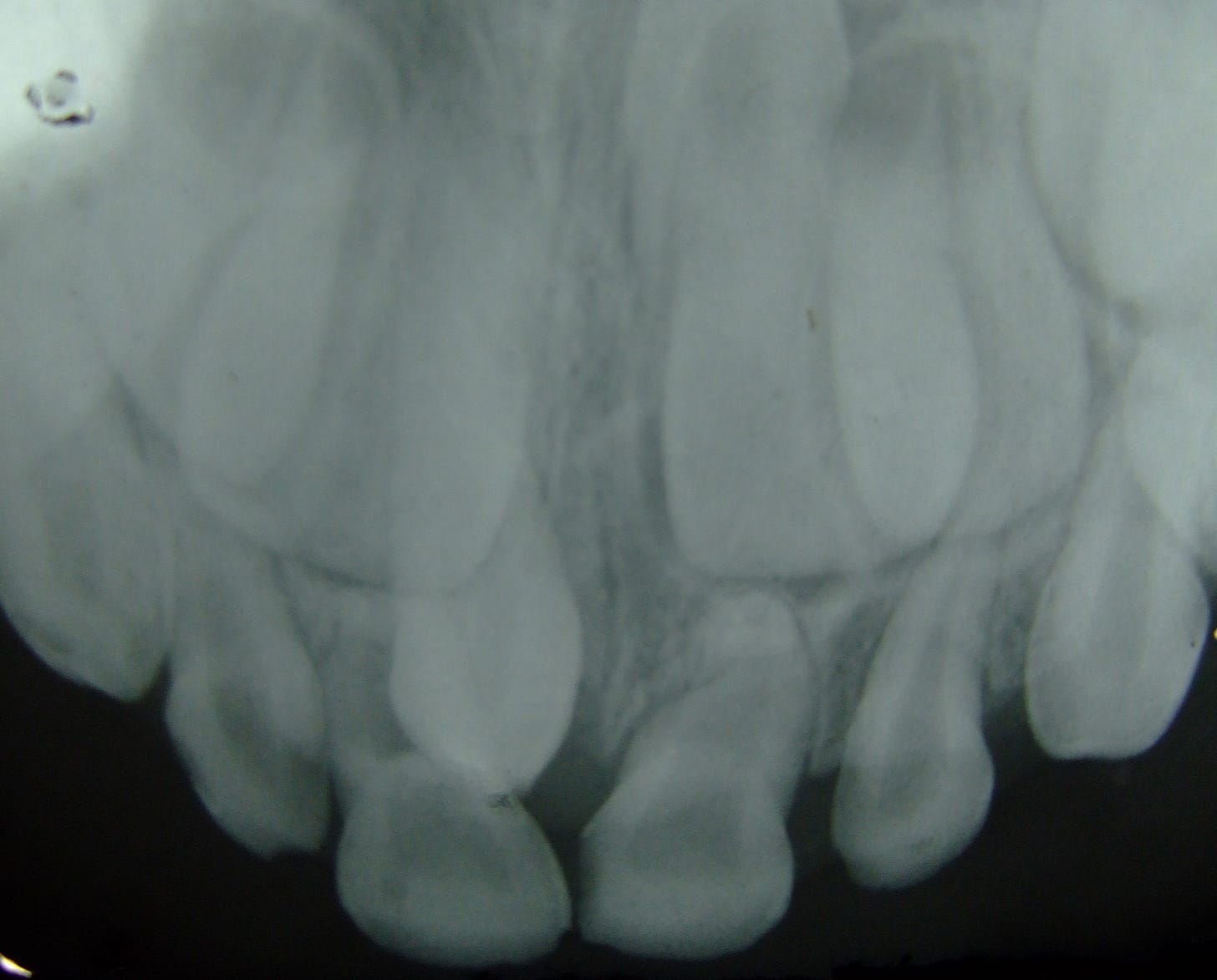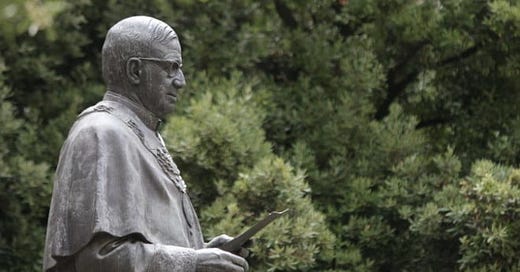English fun facts: Deciduous and supernumerary
[What links trees and Opus Dei? The answer has to do with teeth!]
Fun fact: Baby teeth, or primary teeth, are also called deciduous teeth—the same word used for leaves that fall in autumn (deciduous leaves) and the trees that shed them (deciduous trees).1
Not-so-fun fact: Some people have, in addition to the normal primary and secondary teeth, a third category of teeth, called supernumerary teeth2—the same word use for, um, married members of Opus Dei.3 (The adult teeth that number 32 are numerary teeth, and any teeth beyond this number would be supernumerary.4 Opus Dei members who commit to celibacy are called numeraries for reasons that seem to make more sense in Spanish than in English.5)
You probably didn’t know there was anything linking types of trees and types of Opus Dei members, did you? That’s because you didn’t know enough about types of teeth!
(I like to think that I am a font of all kinds of information—useful information, to be sure, but also the other kind.)
Non-deciduous trees are, of course, evergreens. There is also an in-between class of trees called semi-deciduous—unsurprisingly also called semi-evergreen.
The condition of having such additional teeth is unsurprisingly called hyperdontia. (In humans, that is; it isn’t called that in sharks, because that’s how shark teeth work normally.)

Not all supernumerary members of Opus Dei are married, but all married members of Opus Dei are supernumerary. Numerary members of Opus Dei commit to celibacy. The super- prefix in this case has the sense less of “extra special” than simply “extra” (think “superfluous” rather than “superlative”). This also is slightly misleading, since supernumeraries are today the majority of Opus Dei members!
Fingers, nipples, or other body parts beyond the normal number are unsurprisingly also called supernumerary. As these normally do not also come in deciduous varieties, though, they are not as suited to the purpose of this little piece as supernumerary teeth!
Opus Dei was founded by St. Josemaría Escrivá. A friend who is a numerary tells me that St. Josemaría probably wanted a term for members different from the language used by religious orders. In Spanish numerario is used, for example, for tenured faculty members of a school, while supernumerario can mean an adjunct faculty member or a temporary employee of some other kind.






I think religious orders are full of turns of phrase that sound odd in English, since the context of the loan words in their original language are often different from English usage, but they tend to be translated directly for ease of use between members across multiple languages. For instance, the French community I discerned with uses the term "probation" for the year following common formation. I often had to assure friends and family that there wasn't anything negative implied by the term and that it simply meant I was in a trial period of sorts.
The names numerary and supernumerary, I believe, come from Spain Universities: tenured professors are numerarios, Assistant Professors are supernumerarios, or something like that. The idea was basically the same: if you have exclusive dedication to Opus Dei, or if you have a divided dedication (there's a third group, the associates, who also celibates, but live usually with parents or other relatives).
I had 3 supernumerary teeth. It's not as bad as the wisdom teeth (but they are in addition to them, which makes things not so fun).